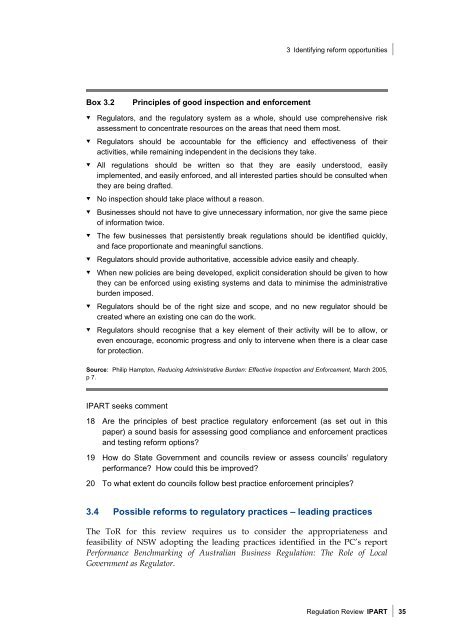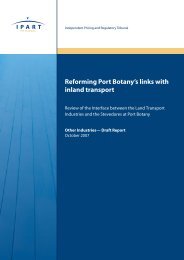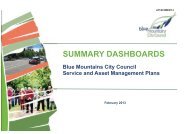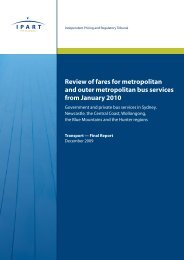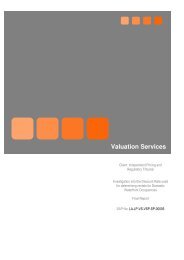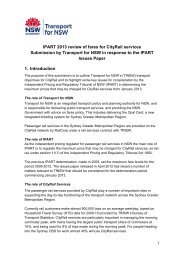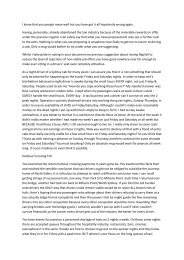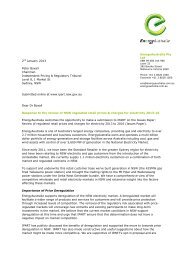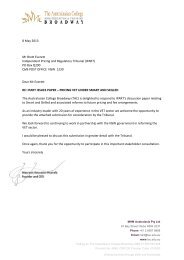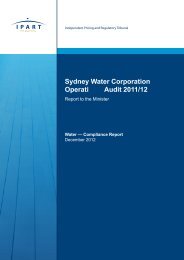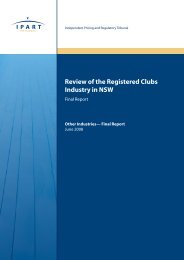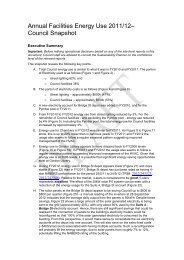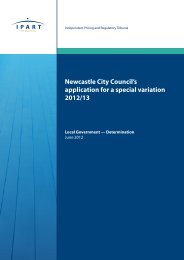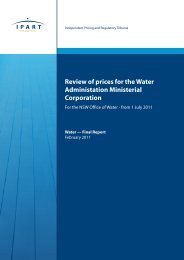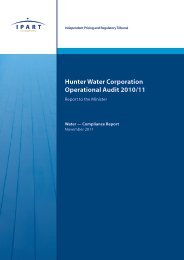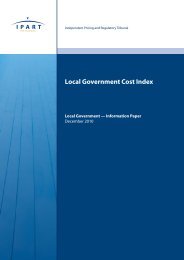Regulation Review - IPART - NSW Government
Regulation Review - IPART - NSW Government
Regulation Review - IPART - NSW Government
Create successful ePaper yourself
Turn your PDF publications into a flip-book with our unique Google optimized e-Paper software.
3 Identifying reform opportunities<br />
Box 3.2<br />
Principles of good inspection and enforcement<br />
<br />
<br />
<br />
<br />
<br />
<br />
<br />
<br />
<br />
<br />
Regulators, and the regulatory system as a whole, should use comprehensive risk<br />
assessment to concentrate resources on the areas that need them most.<br />
Regulators should be accountable for the efficiency and effectiveness of their<br />
activities, while remaining independent in the decisions they take.<br />
All regulations should be written so that they are easily understood, easily<br />
implemented, and easily enforced, and all interested parties should be consulted when<br />
they are being drafted.<br />
No inspection should take place without a reason.<br />
Businesses should not have to give unnecessary information, nor give the same piece<br />
of information twice.<br />
The few businesses that persistently break regulations should be identified quickly,<br />
and face proportionate and meaningful sanctions.<br />
Regulators should provide authoritative, accessible advice easily and cheaply.<br />
When new policies are being developed, explicit consideration should be given to how<br />
they can be enforced using existing systems and data to minimise the administrative<br />
burden imposed.<br />
Regulators should be of the right size and scope, and no new regulator should be<br />
created where an existing one can do the work.<br />
Regulators should recognise that a key element of their activity will be to allow, or<br />
even encourage, economic progress and only to intervene when there is a clear case<br />
for protection.<br />
Source: Philip Hampton, Reducing Administrative Burden: Effective Inspection and Enforcement, March 2005,<br />
p 7.<br />
<strong>IPART</strong> seeks comment<br />
18 Are the principles of best practice regulatory enforcement (as set out in this<br />
paper) a sound basis for assessing good compliance and enforcement practices<br />
and testing reform options?<br />
19 How do State <strong>Government</strong> and councils review or assess councils’ regulatory<br />
performance? How could this be improved?<br />
20 To what extent do councils follow best practice enforcement principles?<br />
3.4 Possible reforms to regulatory practices – leading practices<br />
The ToR for this review requires us to consider the appropriateness and<br />
feasibility of <strong>NSW</strong> adopting the leading practices identified in the PC’s report<br />
Performance Benchmarking of Australian Business <strong>Regulation</strong>: The Role of Local<br />
<strong>Government</strong> as Regulator.<br />
<strong>Regulation</strong> <strong>Review</strong> <strong>IPART</strong> 35


